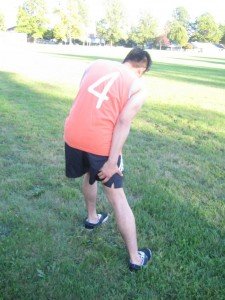The thoracic spine is comprised by 12 vertebrae that are separated by cartilaginous discs that function as shock absorbers and promote movement between the vertebral segments.
In every set of vertebrae, spinal nerves appear to provide nerve impulses to the body organs and muscles. If the individual sustained an injury to the thoracic spine, it can lead to symptoms in the neighboring structures or to the organs being supplied by the nerves that start in that area.
Indications of injury to the thoracic spine
Pain
The lower thoracic spine is a region that is frequently affected by compression fractures. It is important to note that these fractures are caused by excessive load or strain on the bone which is an issue for concern among those who have osteoporosis.
The pain triggered by an acute compression fracture of the lower thoracic spine can be intense and spread into the lower back or legs. Any movement can worsen the pain. In addition, gradual erosion and compression of the lower thoracic vertebrae can lead to milder pain or no pain at all.

Numbness
There is also likelihood for injury to the spinal cord once the lower thoracic spine endured trauma. This can lead to sensation loss or ‘pins and needles’ sensation or paresthesia.
The trauma on the thoracic spine can result to a herniated disc where a part of the cartilaginous disc separating 2 thoracic vertebrae ruptures and protrudes. The herniated disc can compress on the nerves and cause tingling and numbness down to the legs.
Bladder and bowel dysfunction
The nerve supply to the excretory organs can be disrupted due to the injury to the lower thoracic spine. Fecal or urinary incontinence are likely the outcome of a herniated lower thoracic disc. This occurs since impingement weakens the overall nerve function and diminishes the ability of the individual to sense fullness in the bowels or bladder. Always remember that this symptom must be carefully assessed since it can indicate an immediate need for surgery.
Once an individual is suspected with a possible injury to the thoracic spine, it is best to set an appointment with a doctor. If any of these symptoms are present, the individual should not hesitate to see a doctor.
